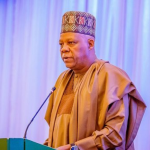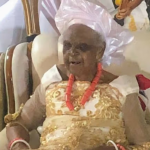For the first ten days in August, Nigerians nationwide protested against bad governance and a downturn in their collective economic fortunes....READ THE FULL ARTICLE HERE ▶▶
The past 18 months have seen the Naira sink even lower against the dollar, food inflation reach an all-time high (40%), the cost of petrol double after a subsidy was discontinued with no back-up plan, and unknown ‘bandits’ continuing to wreak havoc across the north of the country….READ FULL ARTICLE
There have also been budget padding scandals – in which a budget is artificially inflated or reduced to divert funds away, often for corrupt purposes – allegations of public money being spent on a presidential yacht and private jets, and a general sense that the political rich are getting richer and the country’s poor and now nearly non-existent middle class are getting screwed.
The ‘End Bad Governance’ and ‘End Hunger’ protests were, then, perhaps unsurprising. But compared to other protests in Nigeria in recent years, they were strange.
Get our free Daily Email
Get one whole story, direct to your inbox every weekday.
The last nationwide protest movement, #EndSARS, held in October 2020, was against brutality by a rogue police unit known as the Special Anti-Robbery Squad (SARS). It was a spontaneous, Gen Z-driven protest that was described as “leaderless” and had nationwide and international diasporic appeal, as well as heft and momentum. For two weeks, it brought the country to a standstill – until the night of 20 October, when soldiers arrived at the main protest site, the Lekki toll gate in Lagos State, killing at least 12 protesters, according to Amnesty International, and injuring hundreds more.
This latest protest was less spontaneous; organisers (a medley of different civic groups) gave the government two weeks’ notice. In that time, current and former officials at every level – from across the legislative, executive, judiciary, the military, the police – all spoke out against it, demanding dialogue instead. They said the protest had to be quashed because it would inevitably be hijacked by unknown “hoodlums”. The police did not provide the public with any information as to how they could protect and serve citizens who were performing their constitutionally guaranteed rights.
When it became clear the protests would not be stopped, court orders were sought to hem protesters into “designated” areas. So, you could demand the government do something about previously affordable staples such as eggs and yams, now being luxury goods – but you could only do it in certain places; National Stadium, in Abuja, for instance, far away from any neighbourhood eyes, government buildings or any symbol of mass resistance. And even then, you might still be shot at by police or the military, or in some unfortunate cases, killed.
The protests – which did not always stay within the designated areas – ended on Friday 10 August. But there is still no clear indication of what the government will do to end its bad performance or turn the economy around (unless you count President Bola Ahmen Tinibu’s speech on 4 August, in which he largely touted apparent achievements that have yet to be felt and are unlikley to ever be).
openDemocracy got on a video call with Afolabi Adekaiyaoja, research analyst at an Abuja-based think tank, the Centre for Democracy and Development, to discuss what these protests mean, whether they will change anything and some of their more bizarre highlights, such as protesters waving a Russian flag and internet connectivity mysteriously slowing down nationwide a few days before the protests started.
This interview has been edited for length and clarity.
openDemocracy: Why does this protest matter right now? And what does it say of where Nigeria and Tinubu’s leadership of the country is?
Adekaiyaoja: This is really important because of when it is happening. So if we look at #EndSARS – Nigeria’s 2020 nationwide protests against police brutality – it happened after former President Buhari had gotten elected for a second term. He could afford to carry out the Lekki Toll Gate Massacre. He could afford to ban Twitter for a year and not really worry about the consequences.
You see these protests coming now under two years of Tinubu being in power. It’s almost a warning shot because he now knows that whatever he does will be used in determining if he gets a second term. So there’s a political angle there. That’s the reason why a lot of the commentary that I’ve been really trying to engage with has been asking: is this really an organic protest like #EndSARS was?
#EndSARS was not planned. It really just happened. Somebody got killed by the police. People were angry in different parts of the country. They started acting. Next thing you know, it just sparked up and just became something that they could not even control.
Whereas with this one, they were giving government warning shots. They gave the government notice that we are going to go and protest almost like a month before. It gives you the sense that, clearly, there was an attempt to almost parlay the threats of this action into forcing the government to do something different. So whereas #EndSARS was organic, this has felt much more contrived. And I feel like when you look at where the protests have been much more prevalent (in Northern Nigeria) that also adds to that sense that maybe it’s actually more political than people-centred.
Do you mean the organisers were buying the government time to come around to their demands? In a way that feels too forgiving of the government’s actions the last 18 months?
I mean that you get the sense that if the government had acted in a particular way during that period, the protest might not have gone ahead. In fact, what you even see is that there were quite a number of different lobby groups that had keyed into the idea of the protests, and what they said was: look, this guy has increased the minimum wage. This guy has done this, done that. We are no longer protesting. It’s hard not to assume that somewhere, somehow, there is the back channelling and behind-the-scenes manoeuvring that informed the way the protests went. So that makes it much more overly political than actually being an organic, people-driven response and movement.
What do you think the demands of the protests and lobby groups would have been to the government?
Honestly, I think that part of it comes down to the politics of appointments. There were political groups that wanted a change in the way that the appointment structures have been under this government. Former President Buhari and current President Tinubu have both been accused of being particularly nepotistic when it comes to the appointments. Some very key strategic roles in government have been given to a individual from the same place as Tinubu in the south-west. But if you look at the zonal breakdown of votes Tinubu won in the election, it was the north-west and north-central areas that took him over the line. So there’s the idea that they should be commensurately recognized and are taken care of.
It’s very clear to see that this protest was not, as you know, clear or coordinated, because there was no direct ask. I went out on the first two days of the protests and asked people: ‘Okay, what will you hear now, like today, that will make you go back home? Or what announcement can Tinubu make in his speech that will make you say, I will not come out again?’ There was no consistent answer.
If you look at the recent protests in Kenya, the ask was clear: to revoke the Finance Bill. But in Nigeria, there was no clear ask – which is why Tinubu could afford to come out on Sunday 4 August and give a particularly watery speech that just tried to hype his own achievements, but not really give any clear indication of what he had picked up from the protest or what he wanted to change. There was no clear saying, like ‘sack half your cabinet’ or ‘remove this particular restriction’, or ‘bring back the petrol subsidy’. In Abuja, there were different groups protesting. They were also protesting in different languages.
What kind of different asks did you hear at the protests?
Some people asked for Tinubu to fire parts of his cabinet – recurring names were the ministers of defence, of the interior, of women affairs and of communications, innovation and digital economy. Some asked for the president to reduce the presidential fleet of planes and a reported yacht. Others asked for a mandatory cutting of salaries in half across government. Others asked to bring back petrol subsidy. Also, stamp out corruption.
Interestingly, a lot more northerners were very clear about highlighting issues of insecurity, saying: ‘The north is not safe. They’re killing our children.’ That was a recurring theme whenever I spoke to people of northern extraction. If you were to create a word cloud of the protests it would look very hazy but if you started to isolate people’s demands based on where they were from in the country, it would be clear. Some people have used the idea that it was politically motivated to weaken the north ahead of the next elections.
The protests in Kenya forced some accountability, with the infamous Finance Bill rejected and President Ruto sacking his Cabinet. In my opinion, it’s hard to imagine that this kind of citizen-demanded consequence could happen in Nigeria…
I think it’s possible. At the beginning of our democracy, it almost felt as though there was a very strong sense of elite consensus. If they agreed on a person, that was it. It was almost a one-party state without the imagery. What we are seeing now is clear division. There’s no elite consensus anymore.
In the Obasanjo era – after Nigeria’s return to democracy in 1999 – even the tacit acknowledgement that people are encouraging protests for political reasons would be strange because everyone that could benefit was on the same side of the aisle so there was no incentive to try and cause division.
The more we are reaching a more fragmented elite structure, which means people actually have to win in their own different rights, the more we reach a point where citizen groups become more influential. I think – and I can acknowledge being optimistic – that this will change.
In some protests across northern states, we saw the Russian flag being waved by protesters? How did this happen and what does this mean?
I think it’s more a regional issue, rather than one related to Nigeria specifically. If you look at the countries that have had military coups in recent years, in West Africa – Mali, Niger, Burkina Faso – there have been these sentiments of anti-Western push and the Russian flag has become the prevailing symbol of this. There’s also a strong body of work that has been looking at sustained Russian disinformation campaigns that are trying to push the idea that Russia is on the side of these countries as opposed to the West, which is trying to make these countries a stooge or subplot of its wider hegemonic and capitalist ambitions.
It’s not new in the region. If you look at the porous borders that Nigeria shares with Chad and Niger – where there have been pro-Russian sentiments – it speaks to the possibility that people there have made the case to Nigerian protesters that ‘look, Westerners are doing this and you have to push back’. A tipping point was the rumours a while back that Tinubu was a stooge of the West and would support the creation of a US military base in Nigeria. Even the regional narrative that’s been pushed is that Tinubu as the chair of ECOWAS (Economic Community of West African States) had a heavy-handed response against Niger’s 2023 coup because he is a Western stooge. There will be a lot more to unpack in the weeks and months ahead.
In the days before and during the protests, internet connectivity has slowed down considerably across Nigeria. Civic groups have accused the Nigerian government of directing telecommunication firms (known as telcos) to throttle connectivity and perhaps slow down organising of the protests. We saw a similar tactic during #EndSARS protests when protests ‘organisers’ had their bank accounts frozen. Do these events speak to the Nigerian state’s capture of private industry? Why are they so apparently easily willing to do the government’s bidding?
Many of our industries have not matured to the point where they can hold themselves against a government. Many of these companies are still dependent on the fact that when they flout a policy, the government will ignore it if they’re friendly or send regulators after them if they’re anti-government. Many industries are not that independent.
When it comes to telcos or banks, they’re dependent on the government. We don’t have many cases where the institutions or agencies that regulate them are neutral. In Nigeria, what’s the benefit of trying to go against the government, be on the side of the people that could be painted as trying to push against elected authority. There’s no upside…READ FULL ARTICLE



